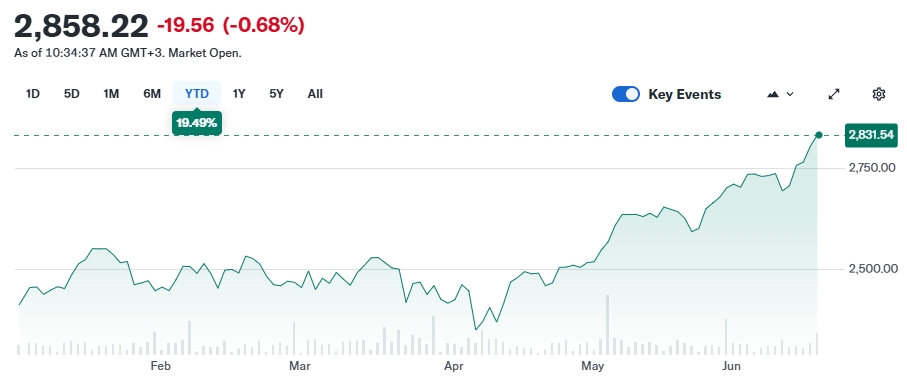Stock Market "Miracle" Amid Israel-Iran Conflict: Israeli Stock Index Hits Record High as War Intensifies
TradingKey – As missile war between Israel and Iran continues to escalate, the Israeli stock market has defied expectations, rising for six consecutive sessions and hitting a new all-time high — an unusual and counterintuitive market reaction that has surprised many observers. Analysts suggest this may reflect both the resilience of the Israeli economy and renewed investor confidence in its strategic position.
As of Sunday, June 22, Israel’s benchmark TA-35 index had gained for six straight trading days, setting a new historical high. Despite ongoing conflicts with both Hamas in Gaza and Iran, the Israeli stock index has risen by 8% since the outbreak of the Israel-Iran conflict, and is up nearly 20% year-to-date in 2025 — significantly outperforming major global indices.

Israel TA-35 Index, Source: Yahoo Finance
War and Stock Gains – An Unusual Combination
Typically, war erodes investor confidence in risk assets and leads to broad market sell-offs. Yet Israel’s equity market tells a different story.
According to The Wall Street Journal, this unusual phenomenon reflects local investors’ familiarity with conflict, and a renewed sense of confidence in Israel's military stance and long-term strategy. The U.S. direct strike on Iran has further reinforced this sentiment.
A large portion of Israel’s capital market is held by domestic investors, who have become accustomed to regional instability over decades of security challenges. These investors have come to believe that prolonged conflict does not necessarily harm long-term economic fundamentals — especially when the economy remains strong, with unemployment hovering near 3%, a multi-decade low.
The report noted that the Israeli economy continues to show remarkable resilience, and rather than fleeing equities, investors are viewing conflicts as buying opportunities.
Data shows that after previous escalations, the Israeli stock market initially rebounded quickly, pulled back slightly, and then resumed its upward trend — suggesting a pattern of short-term volatility followed by sustained strength.
This optimism stems from investor belief that Israeli strikes against Iran will significantly weaken Tehran-backed groups like Hezbollah and other proxies.
Senior officials at the Tel Aviv Stock Exchange said markets are showing cautious optimism under the current security reality, with rising equity prices reflecting an improvement in Israel’s risk premium.
One analyst offered a hopeful interpretation: U.S. involvement may accelerate the end of the conflict — though this remains to be seen.






